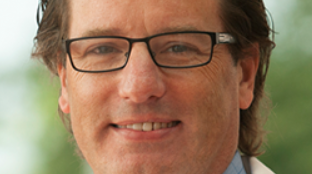John J. Cascone, MD, is a general surgeon based in Atlanta, Georgia. He has a rich background in both healthcare administration and clinical practice, with a strong focus on robotic surgery and patient-centered care. Dr. Cascone is passionate about advancing medical technology while maintaining the human touch that is essential for compassionate patient care. His career is marked by numerous achievements and a dedication to improving healthcare outcomes for all patients.
How did you get started in this business?
My journey into the medical field started in a somewhat unconventional manner. Initially, I worked in marketing at a local hospital in Atlanta. My passion for healthcare and drive to make a difference propelled me up the ranks quickly. By the age of 28, I became the youngest CEO at National Medical Enterprise (now Tenet Healthcare), overseeing psychiatric and substance abuse hospitals. However, my desire to have a more direct impact on patient care led me to pursue a medical degree at 31, transforming my career from healthcare administration to clinical practice.
How do you make money?
As a general surgeon, my primary source of income comes from performing surgeries and providing patient care. This includes both traditional and robotic-assisted surgeries. Additionally, I engage in consulting work, leveraging my extensive experience in healthcare administration and clinical practice to advise on various medical and healthcare projects.
How long did it take for you to become profitable?
Transitioning from healthcare administration to clinical practice required a significant investment in education and training. After completing my medical degree and surgical residency, it took a few years of building my practice and reputation to become profitable. The blend of my administrative background and surgical expertise helped accelerate this process.
When you were starting out, was there ever a time you doubted it would work?
Absolutely. When I decided to shift from a successful administrative career to pursue a medical degree at 31, there were moments of doubt. The rigorous training, financial burden, and the challenge of starting a new career path were daunting. However, my passion for patient care and the support from my family and colleagues kept me motivated and focused on my goals.
How did you get your first customer?
In the medical field, building a patient base often starts during residency. My first patients were those I treated during my residency and fellowship. Their positive outcomes and word-of-mouth referrals played a crucial role in establishing my practice. Networking with other healthcare professionals and being involved in the medical community also helped in attracting my initial patients.
What is one marketing strategy that works well to generate new business?
One effective marketing strategy has been leveraging patient testimonials and success stories. Happy patients are often the best advocates. By sharing their experiences and outcomes, both online and through community events, I’ve been able to build trust and attract new patients. Additionally, maintaining a strong presence in the medical community and participating in conferences and seminars has helped generate referrals and new business.
What is the toughest decision you’ve had to make in the last few months?
The toughest decision recently has been balancing the expansion of my practice with maintaining the high level of personalized care that my patients expect. Deciding whether to hire additional staff and expand facilities, or to keep operations more intimate and manageable, has been challenging. Ultimately, ensuring that quality of care remains uncompromised has guided my decisions.
What do you think makes you successful?
Success for me stems from a combination of factors: a relentless drive to improve patient outcomes, the ability to adapt and innovate, and a strong foundation in both clinical practice and healthcare administration. My commitment to compassionate care, continuous learning, and staying at the forefront of medical technology has also been pivotal.
What has been your most satisfying moment in business?
One of the most satisfying moments in my career was successfully performing a complex robotic-assisted surgery on a patient with a previously inoperable condition. The surgery not only extended the patient’s life but also significantly improved their quality of life. Moments like these, where I can make a profound impact on someone’s health and well-being, are incredibly fulfilling.
What does the future hold for your business?
The future is promising with the continued integration of advanced technologies in surgery, such as AI and robotics. I plan to further expand my practice, incorporating these innovations to enhance patient care. Additionally, I aim to engage more in telemedicine and virtual recovery programs, making high-quality surgical care more accessible to a broader population.
What business books have inspired you?
“Being Mortal” by Atul Gawande has profoundly influenced me. It emphasizes the importance of quality of life in medical care, which aligns with my patient-centered approach. Another influential book is “The Innovator’s Prescription” by Clayton Christensen, which offers insights into disruptive innovations in healthcare.
What advice would you give to your younger self?
I would advise my younger self to be patient and resilient. Success in any field, especially in medicine, takes time and persistence. Embrace every learning opportunity, whether it comes from successes or setbacks. Also, cultivate adaptability, as the journey to your goals may not be straightforward. Trust in your passion and the support of those around you.
Are you willing to be a mentor?
Absolutely. I believe in the power of mentorship and the impact it can have on one’s career. Guiding young surgeons and healthcare professionals, sharing my experiences, and helping them navigate the complexities of the medical field is something I’m passionate about. Mentorship is crucial for fostering the next generation of compassionate and skilled healthcare providers.

